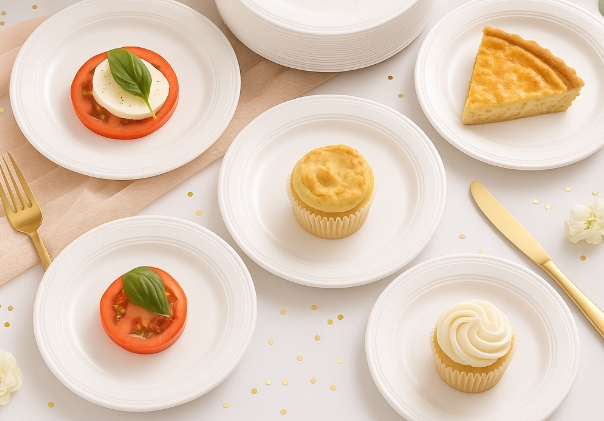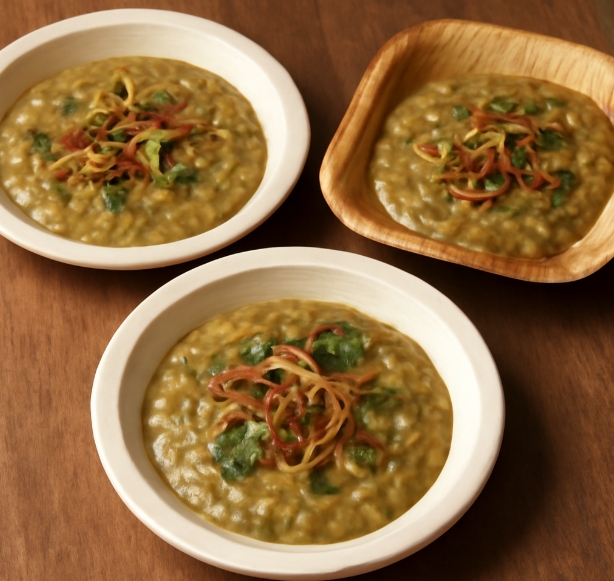
Content Menu
● 1. What Makes a Top Disposable Plate Manufacturer?
● 2. Overview of the Spanish Disposable Plate Market
● 3. Leading Disposable Plate Manufacturers and Suppliers in Spain
● 4. Materials and Types of Disposable Plates
>> Innovations in Materials
>> Common Materials
>> Environmental Impact
● 5. The Manufacturing Process
>> Paper Plate Manufacturing
>> Bamboo and Bagasse Plate Production
● 6. How to Choose the Right Supplier
>> Evaluating Supplier Capabilities
>> Communication and Support
>> Pricing and Payment Terms
>> Case Studies and References
>> Additional Tips
● 7. Sustainability and Certifications
● Conclusion
● Frequently Asked Questions
>> Q1: What is the best material for disposable plates?
>> Q2: Can disposable plates be used for hot or oily foods?
>> Q3: Are all disposable plates microwave-safe?
>> Q4: Can I order customized disposable plates with my logo?
>> Q5: How do I ensure the supplier is reliable for bulk international orders?
Disposable plates have become indispensable in the modern foodservice and hospitality industry, offering convenience, hygiene, and versatility for businesses and events of all sizes. Spain, as one of Europe's leading markets for food and hospitality, boasts a vibrant ecosystem of disposable plate manufacturers and suppliers. This article provides a comprehensive guide to the top disposable plate manufacturers and suppliers in Spain, explores the materials and trends shaping the industry, and offers valuable insights for international buyers seeking reliable OEM partners. The information below is designed to help brand owners, wholesalers, and production companies worldwide make informed sourcing decisions.

1. What Makes a Top Disposable Plate Manufacturer?
Top disposable plate manufacturers and suppliers distinguish themselves through:
- Consistent product quality and strict compliance with food safety standards.
- A wide range of materials and designs to suit diverse needs, from everyday use to luxury events.
- Customization and OEM/ODM services for branding, packaging, and private label requirements.
- Sustainable practices and a strong portfolio of eco-friendly product options.
- Efficient logistics and reliable supply chains for international buyers.
- Competitive pricing and bulk order capabilities.
A reputable manufacturer will also offer transparent communication, clear documentation, and after-sales support, ensuring a seamless experience for clients worldwide.
2. Overview of the Spanish Disposable Plate Market
Spain's disposable tableware sector is dynamic and highly competitive, driven by the country's strong hospitality, catering, and tourism industries. The market includes both domestic manufacturers and importers, with a growing emphasis on eco-friendly and biodegradable products in response to EU regulations and consumer demand for sustainability.
Key Market Insights:
- Spain imports disposable plates primarily from India, Turkey, and Ecuador, but also has a robust local manufacturing base.
- The market is shifting towards biodegradable and compostable plates made from materials like bamboo, bagasse (sugarcane fiber), and cornstarch.
- Customization and branding are increasingly important, with many suppliers offering OEM services for international partners.
Spanish manufacturers are responding to both regulatory pressure and consumer demand by innovating with new materials and production techniques. The sector is also characterized by a willingness to collaborate with foreign brands, offering tailored solutions for private label and custom projects.
3. Leading Disposable Plate Manufacturers and Suppliers in Spain
Spain's disposable plate industry is characterized by a mix of traditional manufacturers and innovative suppliers focusing on sustainability. Many companies have invested heavily in research and development to create plates that meet the growing demand for eco-friendly products without compromising on quality or cost-effectiveness.
Some manufacturers specialize in niche markets, such as luxury disposable plates made from bamboo or other premium materials, while others focus on high-volume production of cost-effective plastic or paper plates.
International buyers often seek suppliers who can provide comprehensive OEM services, including custom designs, packaging, and branding, to differentiate their products in competitive markets.
Below is a curated list of some of the most reputable disposable plate manufacturers and suppliers in Spain:
| Company Name | Location | Specialty | Type |
| MEDIO AMBIENTE PACK S.A. | Xativa-Valencia | Biodegradable/recyclable cardboard plates | Manufacturer |
| VASOMADRID, S.L. | Valdemoro (Madrid) | Plastic, cardboard, foam plates, cups | Manufacturer |
| ANDUPLAS | Andujar | Plastic tableware and cutlery | Manufacturer/Wholesaler |
| ENVANATURE | Onda | Eco-friendly, biodegradable plates | Manufacturer |
| MONOUSO | Sant Boi De Llobregat | Wide range: plastic, paper, eco plates | Wholesaler |
| CEPEDANO S.L. | Villadangos Del Páramo | Single-use/reusable containers, custom plates | Distributor |
| PARTYGAMA SL | Madrid | Party tableware, custom designs | Distributor |
| FOODPACSERVICE | Paterna | Food packaging, disposable plates | Wholesaler |
| TALAPACK | San Sebastian | Compostable packaging for produce | Manufacturer |
These companies represent the broad spectrum of the Spanish disposable plate market, from eco-conscious innovators to high-capacity producers capable of fulfilling large international orders.
4. Materials and Types of Disposable Plates
Innovations in Materials
The disposable plate market in Spain is witnessing innovations in materials that combine sustainability with performance. For example, some manufacturers are developing hybrid plates that use a combination of bagasse and PLA (polylactic acid) to enhance durability and compostability.
Additionally, there is a growing trend towards using agricultural waste products, such as wheat straw and palm leaves, to create unique disposable plates that are both biodegradable and visually appealing.
Common Materials
- Paper/Cardboard: Lightweight, often compostable, suitable for cold and dry foods.
- Plastic (PP, PET): Durable, suitable for oily or hot foods, but less eco-friendly.
- Foam: Lightweight, insulating, but environmentally problematic.
- Bagasse (Sugarcane Fiber): Compostable, sturdy, suitable for hot and wet foods.
- Bamboo: Renewable, biodegradable, premium appearance.
- Cornstarch/PLA: Biodegradable, suitable for various foods.
Environmental Impact
Choosing the right material also involves understanding the environmental impact of production and disposal. Biodegradable plates made from natural fibers like bagasse and bamboo typically have a lower carbon footprint compared to plastic plates, which rely on fossil fuels and contribute to pollution.
Manufacturers in Spain are increasingly transparent about their sourcing and production methods, often providing life cycle assessments (LCAs) to help buyers make informed decisions.
Material Comparison Table
| Material | Eco-Friendly | Sturdiness | Hot Food Safe | Customizable | Cost |
| Paper | Yes | Medium | Sometimes | Yes | Low |
| Plastic | No | High | Yes | Yes | Low |
| Bagasse | Yes | High | Yes | Yes | Medium |
| Bamboo | Yes | High | Yes | Yes | High |
| Cornstarch | Yes | Medium | Yes | Yes | Medium |
5. The Manufacturing Process
Understanding how disposable plates are made helps buyers assess quality and production capabilities.
Paper Plate Manufacturing
The manufacturing process for paper plates typically involves the following steps:
- Cutting raw paper sheets to size
- Automatic molding with heated presses
- Forming plates of various shapes and sizes
- Quality inspection and packaging
Bamboo and Bagasse Plate Production
For bamboo and bagasse plates, the process includes:
- Harvesting and processing raw materials
- Pulping and forming into plate shapes using molds and heat
- Drying, trimming, and quality control
- Packaging for shipment
Manufacturers use advanced machinery to ensure consistency, hygiene, and scalability. Many Spanish factories have invested in automation and quality assurance systems to meet international standards and large order volumes.

6. How to Choose the Right Supplier
Evaluating Supplier Capabilities
Beyond product quality and certifications, it is crucial to evaluate a supplier's production capacity, lead times, and flexibility. Reliable suppliers should be able to handle fluctuations in order volume and provide timely delivery to avoid supply chain disruptions.
Communication and Support
Effective communication is key when working with international suppliers. Buyers should look for partners who offer clear and prompt responses, detailed product information, and after-sales support.
Pricing and Payment Terms
Negotiating favorable pricing and payment terms can significantly impact the profitability of your business. Many Spanish suppliers offer discounts for bulk orders and flexible payment options, including letters of credit and escrow services.
Case Studies and References
Requesting case studies or references from existing clients can provide valuable insights into a supplier's reliability and product quality. Many top manufacturers are proud to share success stories and client testimonials.
Additional Tips
- Material options: Ensure the supplier offers the materials you need (e.g., biodegradable, microwave-safe).
- Customization: OEM/ODM services for branding and special designs.
- Certifications: Compliance with EU and international food safety and environmental standards (FDA, FSC, BPI, ISO).
- Production capacity: Ability to fulfill large or recurring orders.
- Sustainability: Commitment to eco-friendly practices and products.
- Pricing and terms: Competitive rates, bulk discounts, and reliable delivery timelines.
Request samples and review certifications before placing large orders to ensure the supplier meets your requirements.
7. Sustainability and Certifications
Sustainability is a top priority for Spanish and European buyers. Leading manufacturers offer products with:
- Biodegradable and compostable certifications: BPI, EN 13432, ASTM D6400
- Food safety certifications: FDA, SGS, LFGB
- Forest stewardship certifications: FSC for bamboo and paper products
- ISO 9001: Quality management
Spanish manufacturers are increasingly transparent about their environmental impact and often provide documentation to support their claims. Many participate in industry initiatives to reduce waste and carbon emissions, making them attractive partners for businesses with strong sustainability goals.
Conclusion
Spain's disposable plate manufacturing sector offers a diverse range of products and services tailored to meet the needs of international buyers. With a strong focus on sustainability, customization, and quality, Spanish manufacturers and suppliers are well-positioned to support businesses in the foodservice and hospitality industries worldwide.
By carefully selecting suppliers based on material options, certifications, production capabilities, and customer service, buyers can ensure a successful partnership that delivers value and meets evolving market demands.

Frequently Asked Questions
Q1: What is the best material for disposable plates?
A: The best material depends on your needs. For eco-friendliness, bamboo, bagasse, and cornstarch are top choices. For durability and hot foods, plastic or bagasse plates are suitable.
Q2: Can disposable plates be used for hot or oily foods?
A: Yes, but select plates made from bagasse, bamboo, or heavy-duty plastic for best performance. Always check the product specifications.
Q3: Are all disposable plates microwave-safe?
A: Not all. Bagasse, bamboo, and some paper plates (without plastic lining) are usually microwave-safe. Avoid microwaving foam or standard plastic plates.
Q4: Can I order customized disposable plates with my logo?
A: Yes, most leading suppliers in Spain offer OEM/ODM services for custom branding and designs.
Q5: How do I ensure the supplier is reliable for bulk international orders?
A: Look for suppliers with proven export experience, relevant certifications, and positive client reviews. Request samples and verify production capacity before committing to large orders.

















